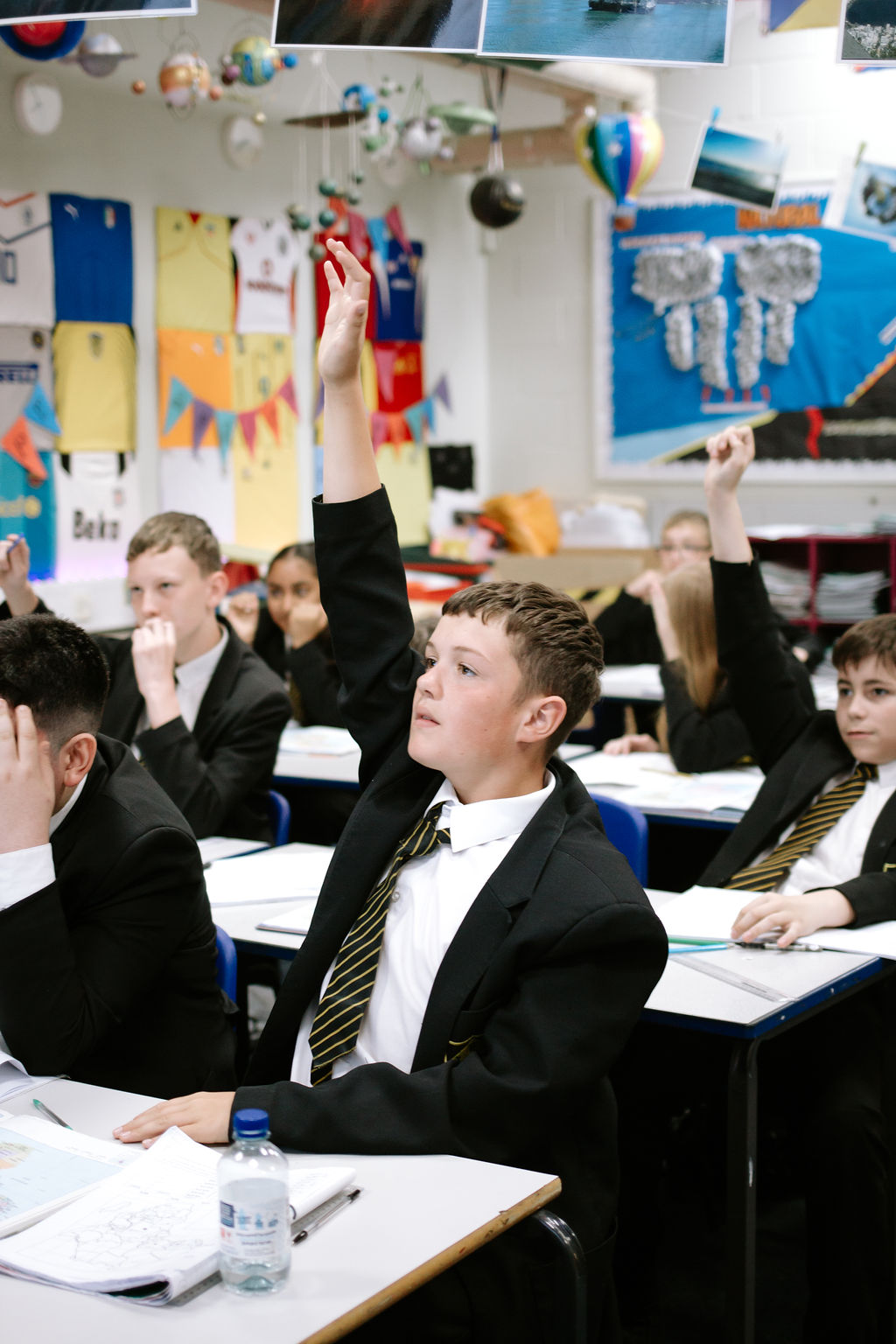Lessons at Lode Heath School
What happens during day-to-day lessons?
Teachers have the freedom and flexibility to plan lessons to ensure progress for all students. However, there are some non-negotiables which all teachers will include every lesson because research shows they are good for learning.
Our non-negotiables are:
Do Now Activity (DNA): As students arrive for their lesson, they will have a DNA to complete. This is ALWAYS a retrieval-based activity based on previous learning.
Learning Journey: All lessons link and build on each other. Learning Journeys show the full overview to the students so they can see what they are going to learn over a unit of work. Students will have their Learning Journey on a yellow handout in their exercise books.
Task Board: This is a list of the different tasks that students will complete in one lesson. This allows students to see what they are going to achieve in a lesson.
Working the Clock: A time limit is applied to all activities; a visual timer is used. However, teachers will amend the timings to suit the needs of the students.
Cold Call Questioning: Teachers will carefully choose students to answer questions in class. Students are told in advance that we will be doing this. This ensure that all students are participating and no one is choosing to “opt out”.
Five to Finish: At the end of every lesson, students complete the following five things at the end of the lesson:
-
Check any written work for literacy mistakes and correct;
-
Tidy up & put all equipment away;
-
Quietly stand behind desk;
-
Correct uniform;
-
Leave calmly when dismissed

How do we make lessons exciting?
Teachers will always try to plan lessons with learning variety in mind.
However, every unit of work will have at least one “AWE and WONDER” lesson. An “Awe and Wonder Lesson” is a special lesson.
Awe can be described as a powerful feeling that leaves a mark; it moves, inspires and motivates us.
Wonder is an inner desire to learn; we want to awaken the need and drive to learn something new.
These lessons are a moment of WOW! Ask your child about them…
How do we provide support and challenge in lessons?
Teachers at Lode Heath School are experts at providing the appropriate support and challenge for all students. All lessons are personalised to meet the needs of the individuals, so that ALL students can access the learning.
Our teachers are responsive teachers, which means they do the following:
- They know exactly what students need to know and do; they focus on the most powerful knowledge and the most useful skills in their subjects.
- They focus on one single academic purpose in a lesson which avoids cognitive overload.
- They show students what success looks like.
- They assess students’ learning during every lesson, but not always through assessments; there are other ways for teachers to check learning.
- They adapt their lessons, during the lesson, if needed to support and / or challenge students.
- They help students improve their work.
For our teachers to be responsive, they know the individual students in their classes well; for example, they know:
- How their classes are progressing and where they should be at any given point in the academic year
- Who their highest and higher attainers are and whether they need further challenge through “Challenge Tasks” which require students to think even more deeply.
- Who their lowest and lower attainers are and whether they need further support such as micro-teaching (small group teaching with the teacher) within the lesson.
There are some specific techniques that teachers use with their classes to support and challenge them; here are some of them below:
- Modelling: Teachers show students what good and bad examples of work look like with clear Success Criteria so that students know how to be successful. This can be used to both support and challenge students because it can be pitched at the ‘right’ level for the student.
- Reading Ages: Teachers know the reading ages of all the students they teach so that they can adapt texts or handouts to ensure they are accessible for all students.
- Teacher Feedback: Teachers regularly give students individual feedback on their learning, which is personal to them, so that they know how to improve; time is then provided to students to make those improvements (see the section “Feedback @ Lode Heath School for mor information” on this)
- Task Choice: Where appropriate, teachers provide a choice of starting points or tasks which meet the students’ needs.
- Top-Down Lesson Planning: Teachers plan lessons which set the learning goals high and then support students in reaching them rather than setting them too low.
